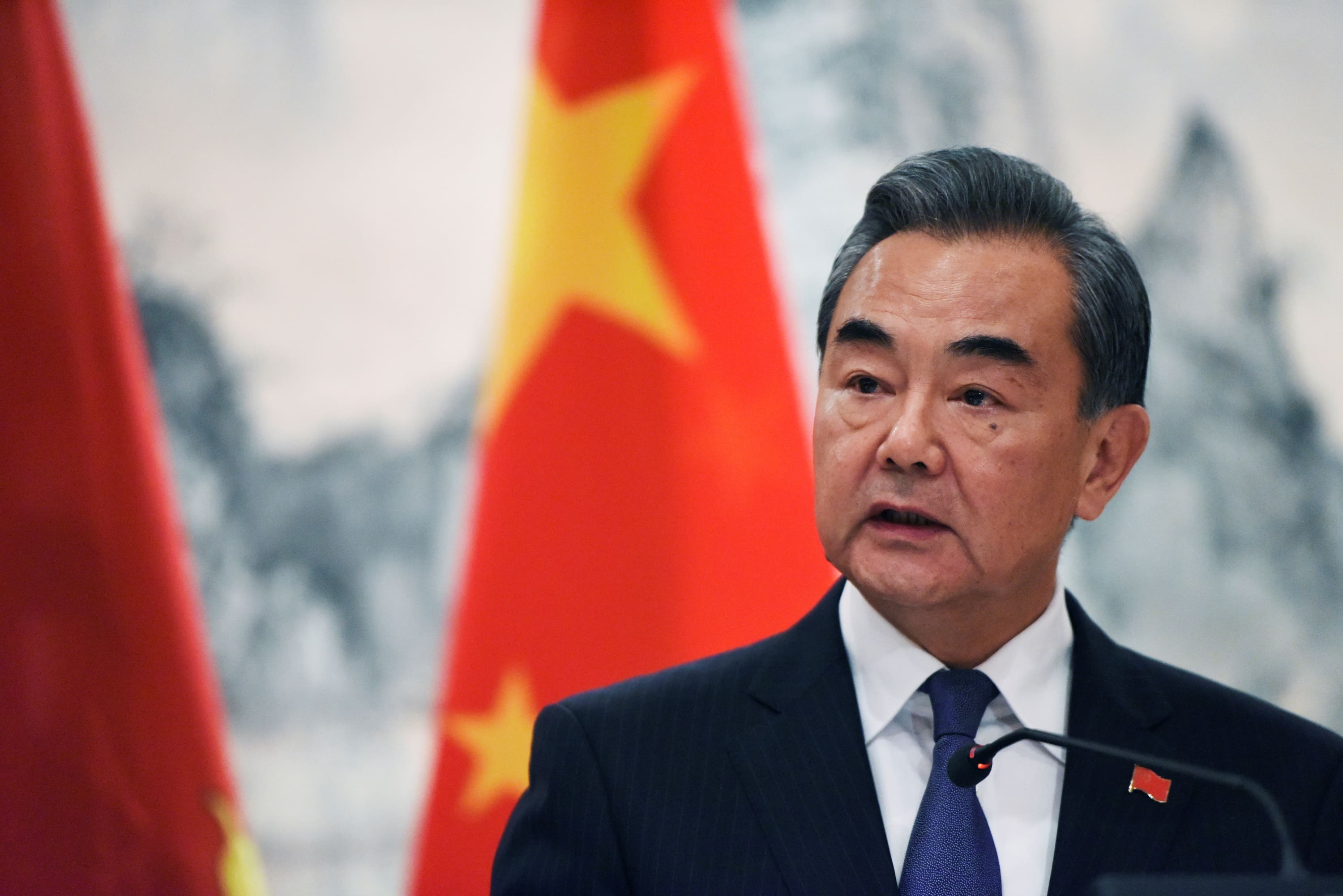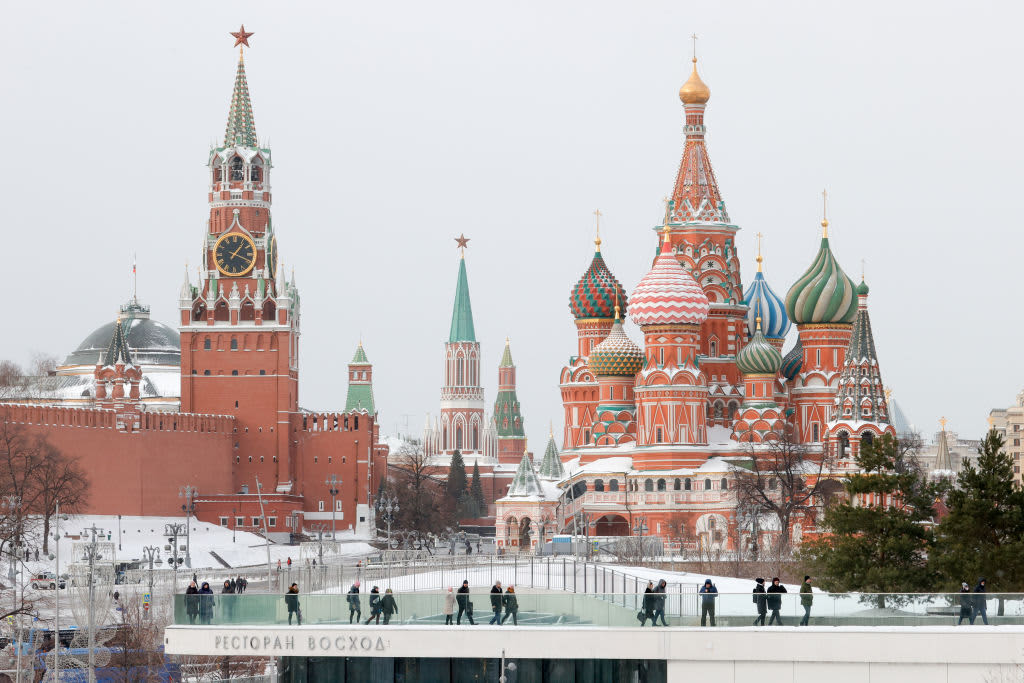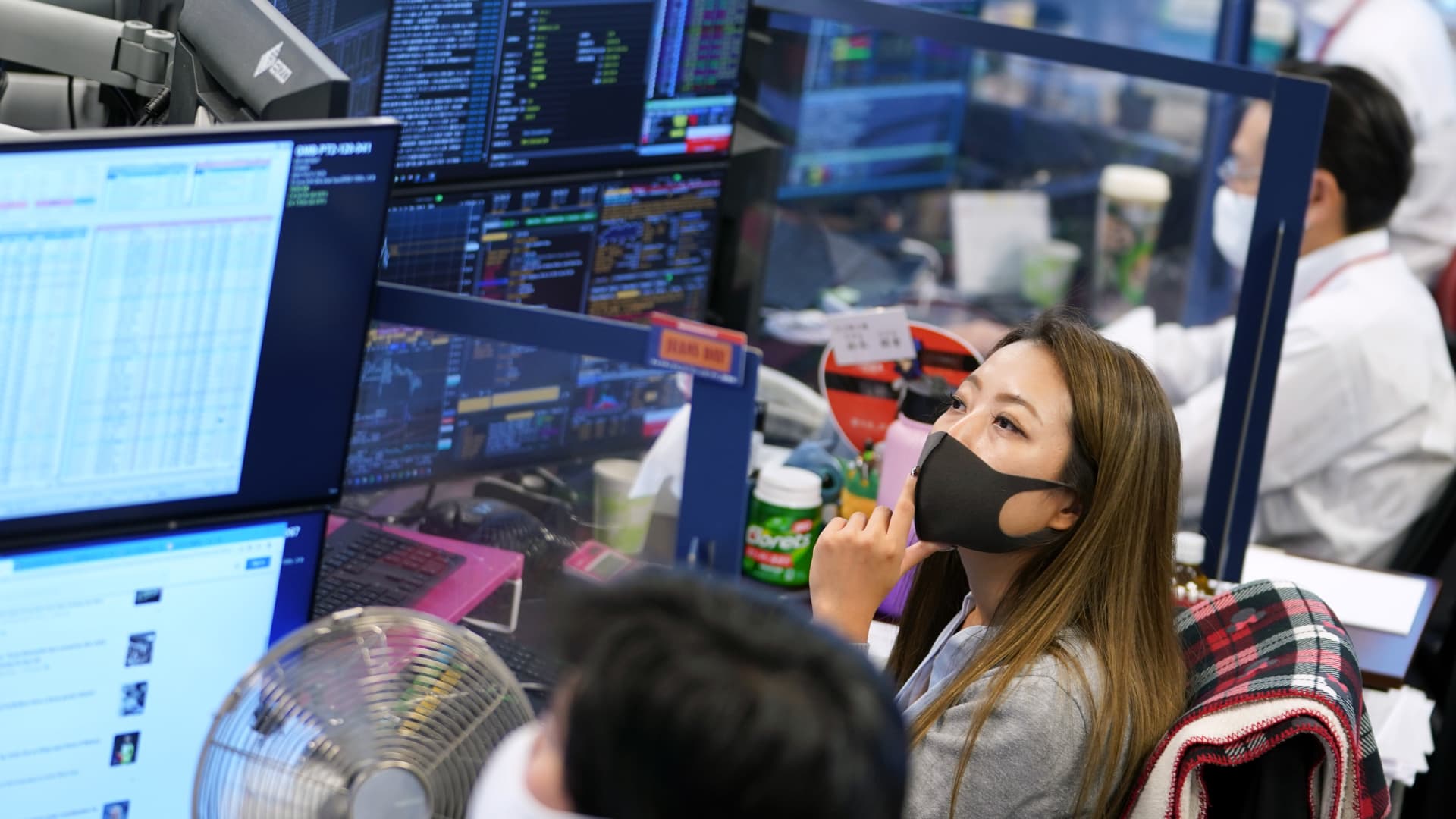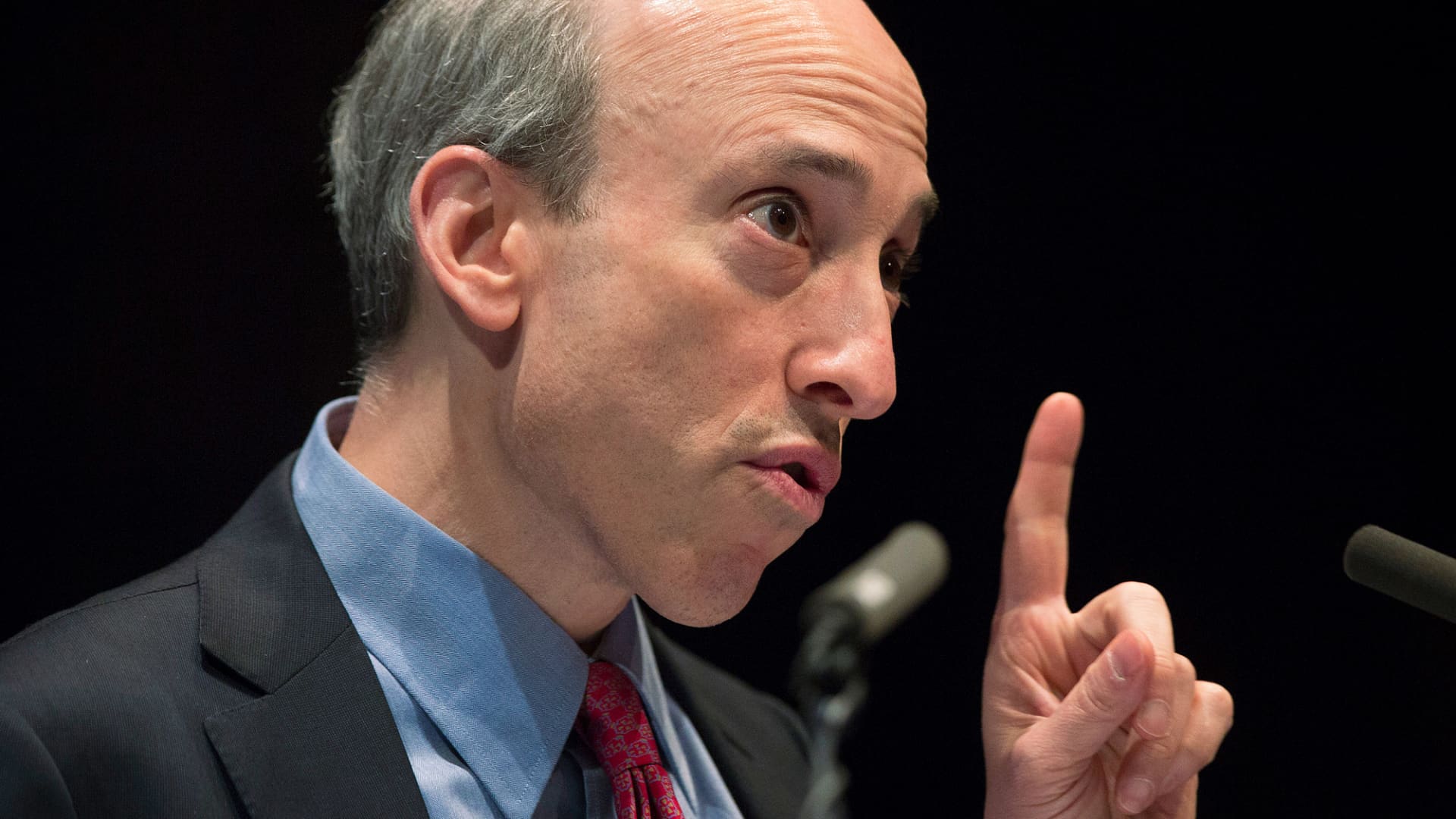China upholds its relationship with Russia, says negotiations needed to solve Ukraine conflict
Chinese Foreign Minister Wang Yi emphasized Beijing's relationship with Moscow in a news conference just over a week after Russia's war on Ukraine began.

Chinese Foreign Minister Wang Yi speaks at a news conference after restoring diplomatic ties with Kiribati on the sidelines of the United Nations General Assembly in New York, U.S. September 27, 2019.
Mark Kauzlarich | Reuters
BEIJING — Chinese Foreign Minister Wang Yi emphasized Beijing's relationship with Moscow in a news conference Monday just over a week after Russia's war on Ukraine began.
"The China-Russia relationship is valued for its independence," Wang said. "We are determined [to keep the relationship] free from interference or discord sown by third parties."
The foreign minister referenced the countries' joint statement about a "new era" of international relations that followed a high-profile meeting in early February between Chinese President Xi Jinping and Russian President Vladimir Putin. The statement had also said there were "no limits" or "forbidden areas" of cooperation, without mentioning Ukraine.
"It sends an unequivocal message to the world that China and Russia jointly oppose attempts to revive the Cold War mindset or provoke ideology-based confrontation," Wang said Monday in Mandarin, according to an official English translation. "The friendship between Chinese and Russian peoples is rock solid."
Wang portrayed the bilateral relationship as separate from China's relations with other countries or regions. He added that the Red Cross Society of China would provide Ukraine with emergency supplies "as soon as possible."
China's relationship with Russia is separate from relations with Europe, Wang said. He added that Beijing's relationship with Taiwan is separate from Russia's conflict with Ukraine, which he said is a matter between two countries. He maintained Beijing's position that Taiwan is part of China's internal affairs.
The Chinese government in Beijing has repeatedly declared it intends to reunify with Taiwan. The island off the coast of mainland China is democratically self-governed but claimed by the People's Republic of China.
Since the war began, Beijing has tried to position itself further away from Russia than portrayed after Xi and Putin met. China's Foreign Ministry has refused to call the violence an "invasion" and maintained that negotiations are needed for resolution.
Wang repeated the same positions in his statements to reporters as part of an annual public appearance on the sidelines of a parliamentary meeting typically held in March. This year's briefing lasted more than 90 minutes and covered China's relations with the U.S., European Union, India, Latin America, Middle East and Africa, among other regions.
The Chinese foreign minister said that rather than provoking or pursuing competition with China, the U.S. should work to restore relations to the "right track."
However, Wang claimed the U.S. Indo-Pacific strategy is an effort to establish an Indo-Pacific version of NATO, the military alliance that focuses on countries bordering the Atlantic Ocean.
In a call Saturday with U.S. Secretary of State Antony Blinken about Ukraine, Wang said the situation has reached a point that China did not wish to see, according to a readout from China's Foreign Ministry.
Wang said again that negotiations are necessary for resolving the situation, according to the readout.
"The Secretary noted the world is watching to see which nations stand up for the basic principles of freedom, self-determination and sovereignty," U.S. State Department spokesperson Ned Price said in a statement about the call.
"He underscored that the world is acting in unison to repudiate and respond to the Russian aggression, ensuring that Moscow will pay a high price," Price said.

 JimMin
JimMin 































.jpg&h=630&w=1200&q=100&v=6e07dc5773&c=1)
